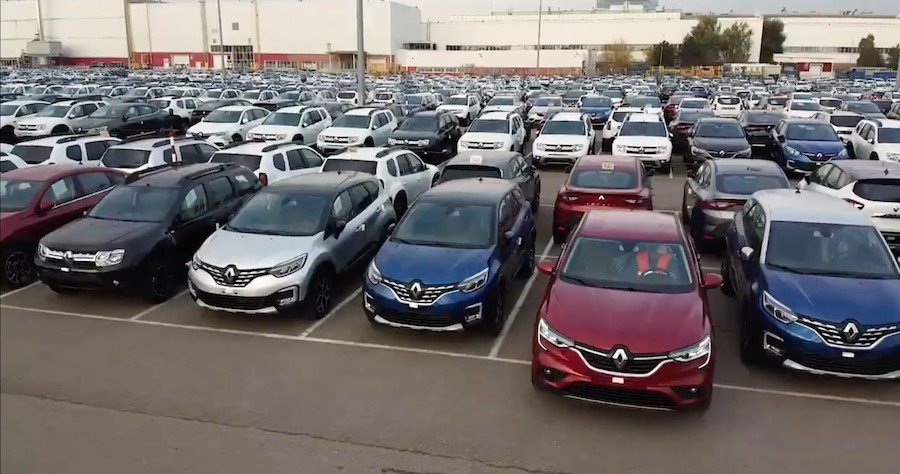Chinese Cars Flood Russia After Western Exit, but There Are Impending Repercussions

Gas prices shot up, and an industry-wide electric components shortage was imminent. But after western countries and companies imposed sanctions on Russia, its car industry suffered the brunt of it all. Leading global automakers, including Volkswagen and Toyota, left Russia, so Chinese car manufacturers are rubbing their hands together at the opportunity.
Doing business in Russia hasn't been easy for opportunistic companies after the attack on Ukraine.
Shell got its fair share of criticism last year after it purchased Russian crude oil at a bargain, well aware of the Ukrainian invasion. After a backlash from critics, former Shell CEO Ben Van Beurden was forced to issue an apology.
Renault suffered the most brutal blow after refusing to cave into international pressure to cease operations in Russia. Following the backlash, the company's shares plummeted 11 percent in March 2022, dropping its market valuation to less than €7.5 billion ($7.4 billion).
Ultimately, the French automaker had to pull out its operations in its second-largest market, writing off about $2.4 billion in assets.
However, as western companies took off, Chinese companies jumped in at the massive opportunity, Bloomberg reported. Consequently, Moscow began rewriting its rules to enable its sovereign wealth fund to invest in currencies from regions that pulled the middle finger on sanction requests from the west, including China.
Chinese automakers, including Geely Automobile Holdings, Chery Automobile, and Great Wall Motor, grappled for the 17% Russian automotive market last year as VW, Toyota, BMW, and Nissan, among other manufacturers, exited.
In March last year, China's top envoy in Russia encouraged the Chinese business community in Russia to waste no time and take advantage of the void created by western sanctions.
During a gathering of the Russia Confucius Culture Promotion event held in the same month, Chinese Ambassador to Russia, Zhang Hanhui, said the mass exodus was an opportunity for Chinese businesses, Telegraph reported.
Chinese President Xi Jinping is standing by Russian President Vladimir Putin, which means Chinese companies still operating in Russia post-invasion won't receive any backlash or criticism back home.
Moving forward, things might not be as rosy as they seem for the Chinese automotive brands doing business in Russia. Especially if they still aspire to make a mark on a global scale, including the United States and Europe.
In case you forgot, Chinese automaker Geely control Volvo and Polestar Automotive Holding. They also have a stake in the car rental industry in European cities like Germany and Spain. Furthermore, Geely is in partnership with Google for the self-driving project Waymo. That's not all. One of Mercedes-Benz and Aston Martin's top shareholders is Chinese billionaire Li Shufu.
Simply put. The Chinese automotive industry has more to lose siding with Russia than caving into international pressure.
Related News


